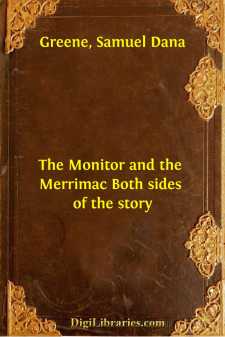History
- Africa 30
- Americas (North Central South West Indies) 50
- Ancient 68
- Asia 58
- Australia & New Zealand 8
- Canada 41
- Caribbean & West Indies 1
- Civilization 20
- Eastern Europe 12
- Europe 310
- Expeditions & Discoveries 60
- General 77
- Historical Geography 1
- Jewish 9
- Latin America 3
- Medieval 8
- Middle East 14
- Military 248
- Revolutionary 8
- Study & Teaching 5
- United States 353
- Western Europe 56
- World 13
History Books
Sort by:
THE Revolution had been accomplished. The decrees of the Convention were everywhere received with submission. London, true during fifty eventful years to the cause of civil freedom and of the reformed religion, was foremost in professing loyalty to the new Sovereigns. Garter King at arms, after making proclamation under the windows of Whitehall, rode in state along the Strand to Temple Bar. He was...
more...
INTRODUCTORY WHAT IS THE SALVATION ARMY? If this question were put to the ordinary person of fashion or leisure, how would it be answered? In many cases thus: 'The Salvation Army is a body of people dressed up in a semi-military uniform, or those of them who are women, in unbecoming poke bonnets, who go about the streets making a noise in the name of God and frightening horses with brass bands. It...
more...
CHAPTER I. INVITATION TO TAKE COMMAND OF CHILIAN NAVY—ARRIVAL AT VALPARAISO—FIRST EXPEDITION TO PERU—ATTACK ON SPANISH SHIPPING AT CALLAO—DEPARTURE FOR HUACHO—CAPTURE OF SPANISH CONVOYS OF MONEY—PAITA TAKEN—RETURN TO VALPARAISO TO REORGANIZE THE SQUADRON—OFFER TO GIVE UP MY SHARE OF PRIZEMONEY TO THE REPUBLIC—THIS OFFER DECLINED BY THE SUPREME DIRECTOR—POPULAR...
more...
Gentle Reader, If you look to move through this little volume in a direct line, after the present fashion of Railway Travelling, you will be signally disappointed. Nothing can well be more circuitous than the route proposed to you, nor more eccentric than your present guide. This book aspires to the precision of neither Patterson nor Bradshaw. Let men “bloody with spurring, fiery hot with...
more...
by:
George Rawlinson
CHAPTER I.DESCRIPTION OF THE COUNTRY."Greek phrase[—]"—HEROD. i. 192. The site of the second—or great Assyrian-monarchy was the upper portion of the Mesopotamian valley. The cities which successively formed its capitals lay, all of them, upon the middle Tigris; and the heart of the country was a district on either side that river, enclosed within the thirty-fifth and thirty-seventh...
more...
CHAPTER I CAMPAIGN IN THE CAUCASUS Disquieting as was the British offensive in Mesopotamia, the Turkish General Staff were not to be drawn by it from considerations of larger strategy. Acting in agreement with the German and Austrian General Staffs, plans were rapidly pushed for an aggressive offensive in the Caucasus, that old-time battling ground of the Russians and the Turks. Germany was being hotly...
more...
Source.—Tasman's Journal (edited by Heeres), pp. 1, 11-16 The Spaniard Torres was probably the first European to sight Australia (Cape Yorke); but Tasman was the first who consciously discovered the Great South Land. In his search for fresh fields for trade, he came upon Tasmania and New Zealand. Journal or description drawn up by me, ABEL JAN TASMAN, of a Voyage made from the town of Batavia in...
more...
INTRODUCTION This is the first-hand story of what was done and seen and felt on each side in the battle of the Monitor and the Merrimac. The actual experiences on both vessels are pictured, in one case by the commander of the Monitor, then a lieutenant, and the next in rank, Lieutenant Greene, and in the other by Chief-Engineer Ramsay of the Merrimac. Clearly such a record of personal experiences has a...
more...
INTRODUCTION. While this work does not pretend to be a history, it will yet present many historical facts. Its object is to show from old newspapers, which are not accessible to all, such items and comments upon a variety of subjects as might be supposed to amuse or instruct both old and young. It is not the easy thing that many imagine to examine, read, and select from a vast number of newspapers such...
more...
CHAPTER I INTRODUCTORY REFLECTIONS The bursting of a thunderstorm is preceded by certain definite phenomena in the atmosphere. The electric currents separate, and the storm is the result of atmospheric tension which can no longer be repressed. Whether or no we become aware of these happenings through outward signs, whether the clouds appear to us more or less threatening, nothing can alter the fact...
more...











